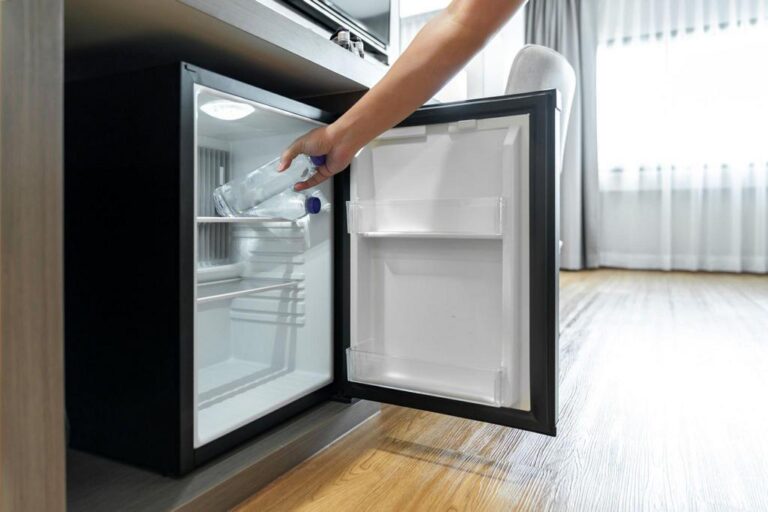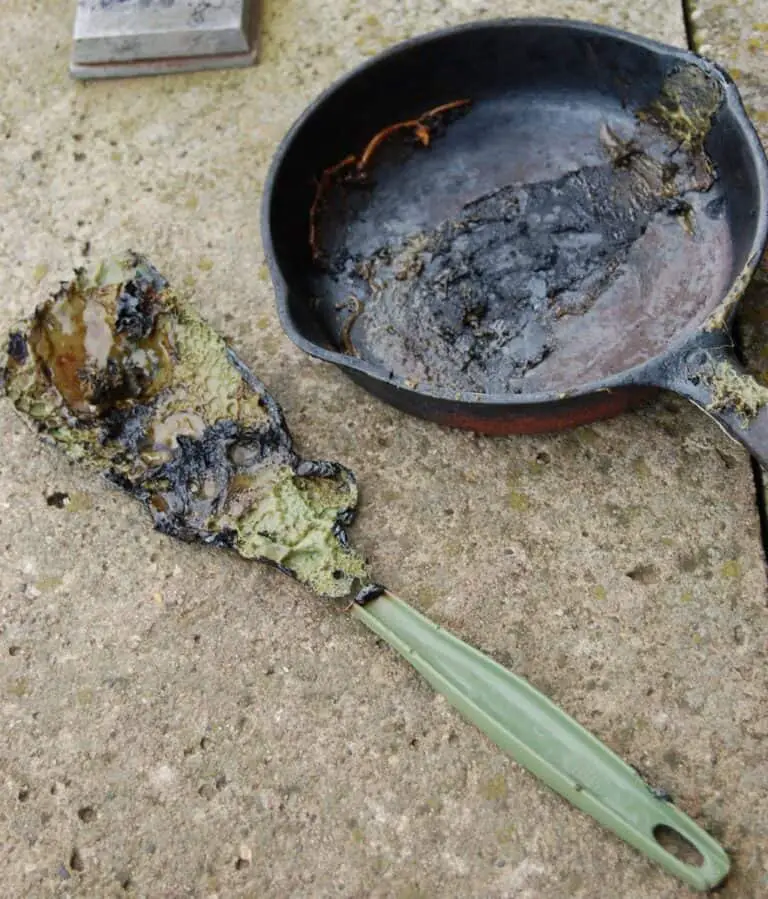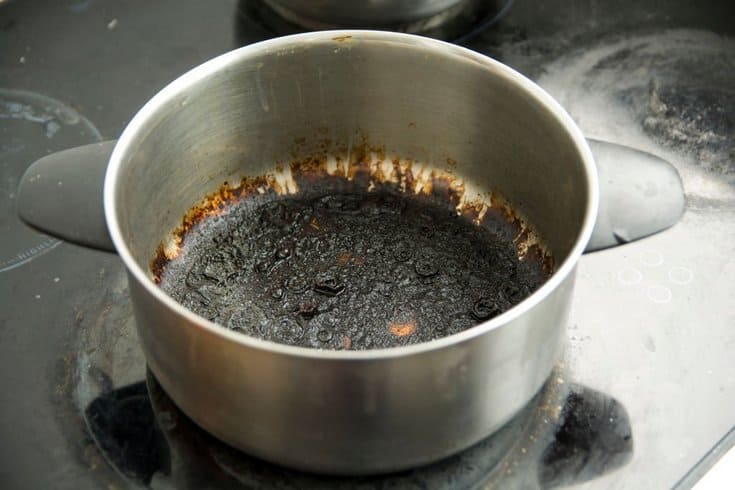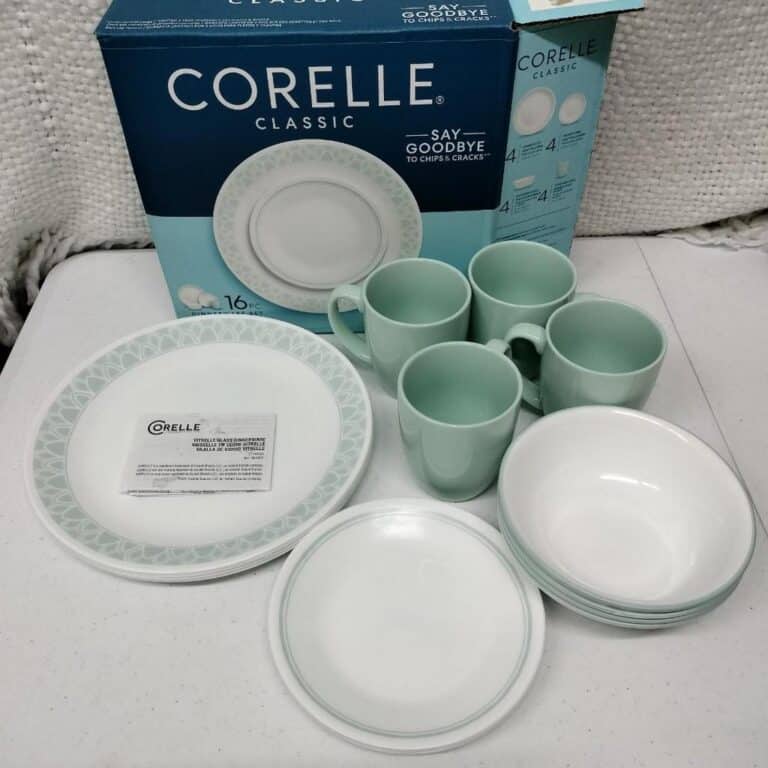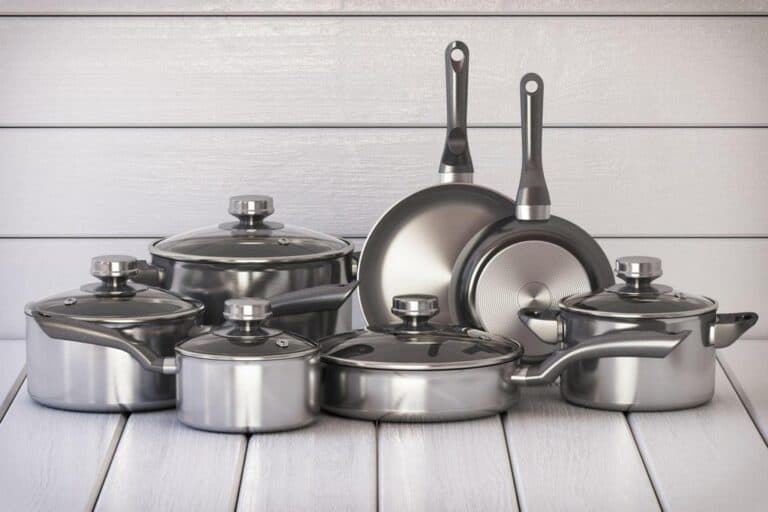What Happens if You Eat off Dirty Dishes Accidentally? Should You Worry?
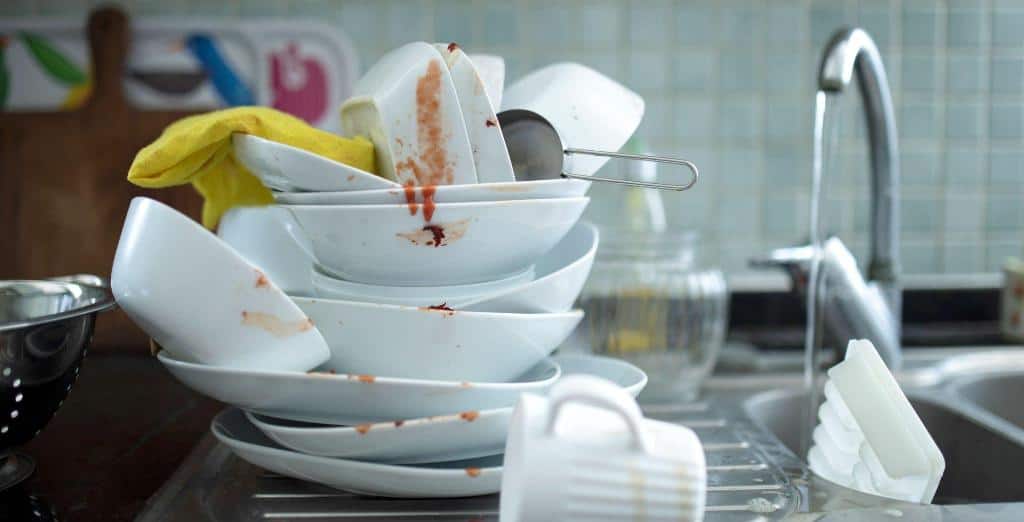
You may have been taught as a child not to eat from dirty dishes. Your mom likely warned you that you would get sick if you ate food that had been sitting on a plate that wasn’t clean.
But what actually happens if you eat from a dirty dish? Is it really that big of a deal?
If you accidentally eat off of a dirty dish, there is no need to worry. You will most likely not get sick from doing this once.
What Happens if You Eat off Dirty Dishes
If you eat off of a dirty dish by accident, there is no need to worry. You will most likely not get sick from doing this once. It turns out that eating off of a dirty dish probably won’t make you sick.
However, eating from dirty dishes on a regular basis increases your risk of becoming ill. This is because bacteria can build up on the dishes and transfer to your food.
Eating food that has been contaminated with bacteria can cause food poisoning. Food poisoning signs and symptoms include nausea, vomiting, and diarrhea. Food poisoning can result in hospitalization or even death in severe cases.
If the dish is covered in visible dirt or grime, then there is a chance that bacteria could transfer to your food and make you ill. However, if the dish just has a few spots or marks, the risk of becoming sick is very low.
So, next time you’re in a rush and accidentally eat off a less-than-perfect plate, don’t worry too much about it.
How Fast Do Germs and Bacteria Multiply on Dirty Dishes?
Bacteria love nothing more than a nice, warm, damp environment. Your kitchen sink is the perfect breeding ground for all sorts of bacteria. So how fast do those dirty dishes grow bacteria?
Well, it depends on the type of bacteria. Some can double in as little as 20 minutes, while others may take a few hours. But generally speaking, if you leave your dirty dishes out long enough, you’re bound to see some bacteria growth.
Dirty dishes are teeming with bacteria. In fact, a recent study found that the average dish has more than 200,000 bacteria per square inch. That’s because when we eat, food particles and saliva end up on our dishes. And when those particles mix with water, they create the perfect environment for bacteria to grow.
So what can you do to prevent this? The best way is to simply wash your dishes as soon as you’re done using them. If that’s not possible, at least make sure to rinse them off and let them air dry before putting them away. And whatever you do, don’t let them sit in the sink for days on end!
Can Eating From a Dirty Dish Make You Sick?
It’s a common misconception that you can get sick from eating off of a dirty dish. However, there is no need to worry if you accidentally eat off a plate that wasn’t washed properly.
While it is possible to contract a foodborne illness from consuming contaminated food, it’s not likely to happen from eating off of a dirty dish.
There are various ways that food can become contaminated, and the most common way is through contact with feces. If there is feces on a dish, it can contaminate the food and cause an infection.
However, this is only likely to happen if the person consuming the food has a weakened immune system.
If you have a strong immune system, you’re unlikely to get sick from eating off of a dirty dish. However, it’s still important to practice good hygiene and wash your hands after coming into contact with dirty dishes.
There are a number of diseases that can be transmitted through contaminated food, including salmonella and E. coli. However, most of these diseases are caused by bacteria, not viruses.
However, it is possible to get a viral infection from eating from a dirty dish. For example, the stomach flu-causing norovirus can be spread by touching a surface that has been contaminated.
How Often Should You Wash Your Dishes?
Most people don’t think about how often they should wash their dishes. However, it is important to keep your dishes clean for both your health and the longevity of your dishware.
Depending on how often you use your dishes and what type of food you are eating, you will need to wash them more or less frequently. Here are some guidelines to help you figure out how often to wash your dishes.
- If you are using disposable plates and utensils, you can simply throw them away after each use.
- If you are using reusable dishes, it is important to wash them after each use. This is especially true if you are eating any kind of raw meat or eggs, which can contain harmful bacteria.
- If you are only using your dishware for cooked food, you can probably get away with washing it once a day or every other day.
Is It Ok To Leave Dirty Dishes in the Sink?
This is a question that many people ask themselves on a daily basis. Some people are of the opinion that it is perfectly fine to leave dirty dishes in the sink, while others believe that it is not okay. There are pros and cons to both sides of this argument. So, which is the right way to go?
Those who believe that it is OK to leave dirty dishes in the sink usually do so because they feel like it is not their responsibility to clean up after themselves. They may also believe that someone else will eventually get around to doing the dishes.
However, leaving dirty dishes in the sink can attract bugs and rodents, and can also lead to the spread of bacteria.
On the other hand, those who believe that it is not OK to leave dirty dishes in the sink usually do so because they feel like it is their responsibility to clean up after themselves.
There are a few things to consider when making this decision. First, think about your own personal hygiene habits. If you’re someone who doesn’t mind eating off of a dirty plate, then leaving it in the sink overnight won’t be a problem for you.
However, if you’re someone who likes to keep a clean kitchen, then you might want to wash your dishes right away.
Another thing to consider is how much water and soap you’re willing to use. If you’re someone who prefers to use a minimal amount of water and soap, then washing your dishes immediately after dinner might be ideal for you.
However, if you’re someone who doesn’t mind using more water and soap than necessary, then leaving dishes overnight might be preferable for you.
| If you’re someone who prefers washing your dishes immediately after dinner, then you’ll need to make sure that you have enough water and dish soap. You’ll also want to have a clean sink with a drying rack or towel. |
How To Clean a Kitchen Sponge Properly?
When it comes to cleaning kitchen sponges, there are a few different methods that can be used.
- One way is to simply put the sponge in the dishwasher and run it through a cycle.
- Another way is to soak the sponge in a vinegar and water solution for about an hour, then rinse it well.
- For a more thorough cleaning, you can also boil the sponge for a few minutes. Simply place the sponge in a pot of boiling water and let it sit for a few minutes before removing it and rinsing with clean water.
Whichever method you choose, be sure to clean your kitchen sponge regularly to prevent bacteria from building up.
How Often Should Dish Towels Be Replaced?
A dish towel is one of the most important tools in your kitchen. It can be used for a variety of tasks, from drying dishes to wiping down counters. But how often should you change your dish towel?
Most experts recommend changing your dish towel every few days—we recommend every three to five days. This will help to keep your kitchen clean and prevent the spread of bacteria. If you use your towel to wipe up spills or clean up after cooking, you may need to change it more frequently.
If you notice that your dish towel is starting to smell, it’s definitely time for a new one. Bacteria can grow quickly on damp towels, so it’s important to make sure you’re using a fresh one each time you dry dishes or wipe down surfaces.
Changing your dish towel regularly is an easy way to help keep your dishes and kitchen clean and sanitary.
Conclusion
While eating from a dirty dish is unlikely to make you sick, it is still important to practice good hygiene and wash your hands after handling food.
In conclusion,it is not advised to eat dirty dishes. This is because you can contract bacteria and other illnesses that can be detrimental to your health. It is important to always wash your dishes, or better yet, use disposable plates and utensils.
By taking these precautions, you can help ensure that you and your family stay healthy and safe.


